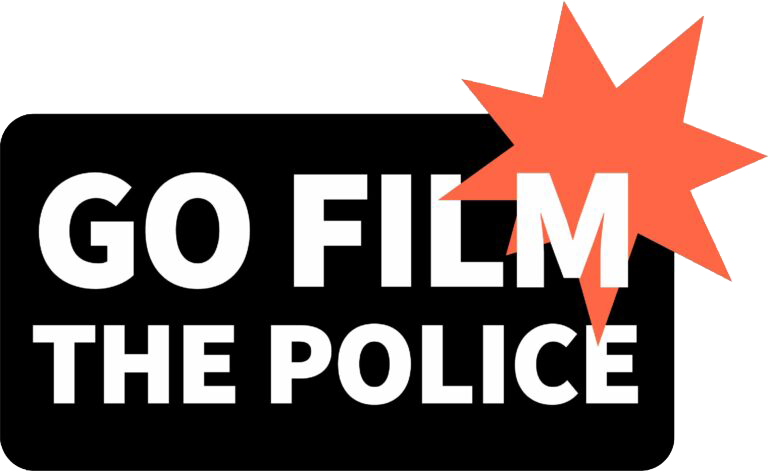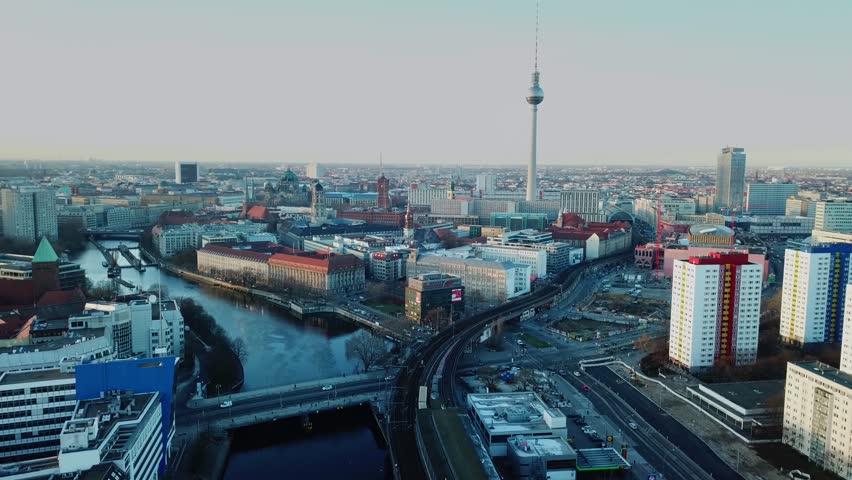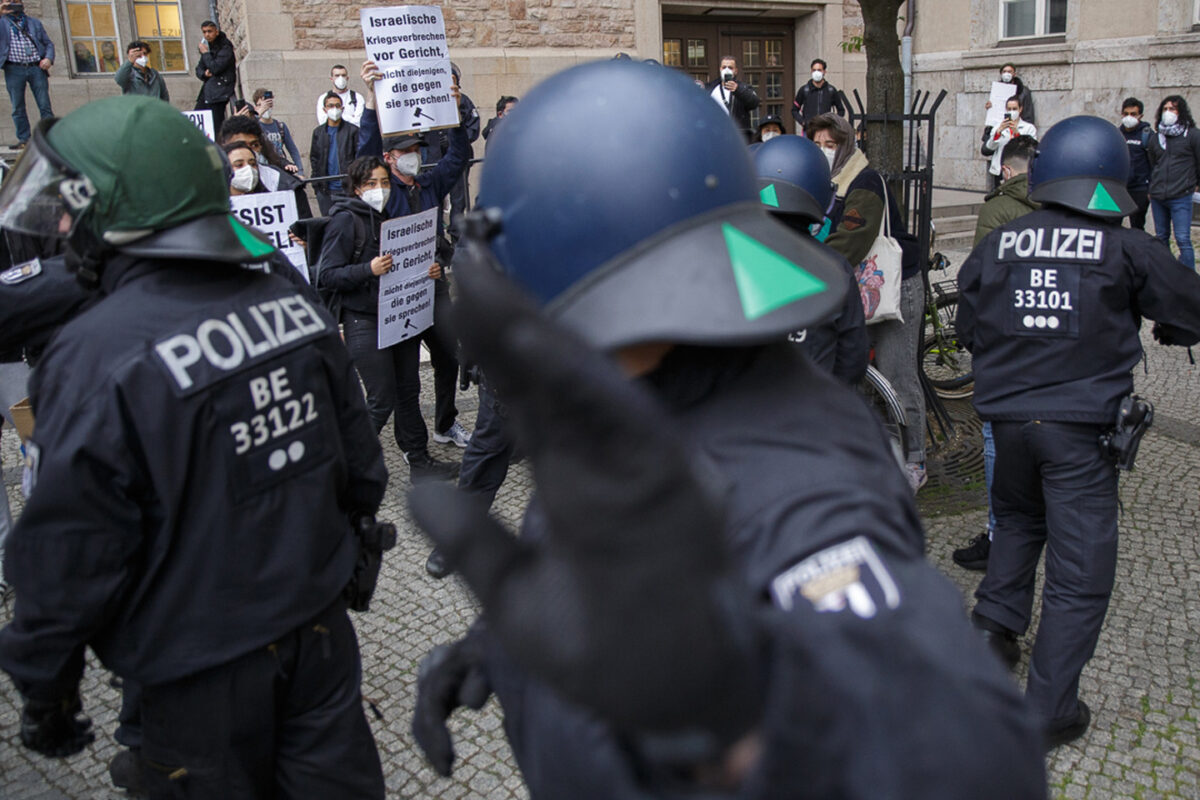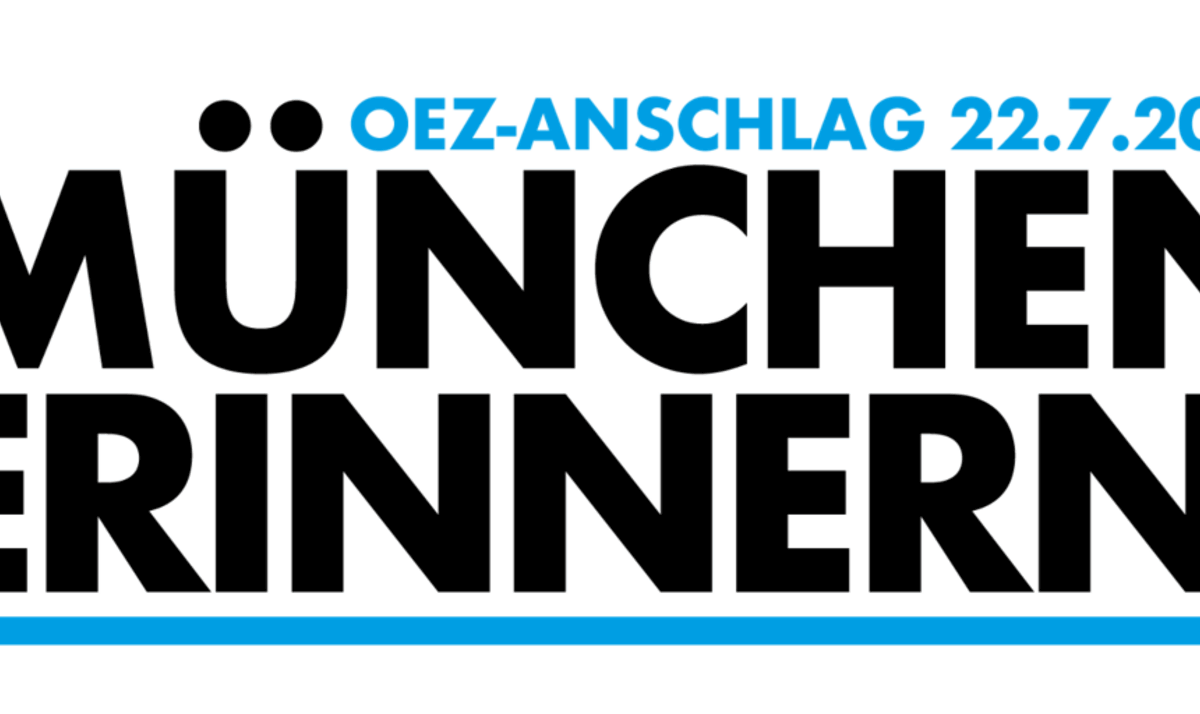The Go Film the Police campaign aims to make racist police violence more visible and demand accountability. The campaign has published a guide in multiple languages on how, where, and when to film the police. We asked FACQ Berlin, a group involved in the guide’s publication, about the motivations behind the campaign.
Where did the idea for the Film the Police guide come from?
The idea started in 2020, and was a combination of many things: The ongoing racial profiling (two of us behind the guide were living at Kotti at the time and were witnesses to many situations of police violence), Covid-related crackdowns on protests, as well as the brutality following the large BLM demonstration in Berlin. All of these intensified the discussions about police violence. There were a lot of discussions on how to best react if witnessing police brutality and racially-motivated police violence.
During those discussions, we noticed a lot of confusion and contradictory information. The little information that was available was all in German, making it especially hard for e.g. non-German speakers or migrant and refugee communities to build on that knowledge. So we thought it would be helpful to compile guidance from people who actually know and make it available more widely. In FACQ Berlin we have a strong commitment to sharing skill and knowledge, and all of this came together to make this guide happen.
And the information in the guide?
We started by compiling existing information from different sources, based in the extensive experiences of structures like ReachOut and KOP Berlin. Some of us are working at the intersection of digital security and activism, so we were able to add that into the guide – as well as our own experiences of being involved on the streets for years.
Berlin has a wealth of knowledge, and there have been various international organisations who have worked on this topic. Our work was to bring all this knowledge (activist booklets, social media posts, legal training handouts..etc) together, update what is needed, develop specific parts to respond to the context and the needs of the streets of our city and our communities, and translate it into what we hope is more accessible language. We also worked with lawyer Maren Burkhardt to review the content from a legal framework.
Who is this guide directed at?
In the world we live in, many of us can be witnesses to police brutality, and many of our BIPoC siblings can be targets of this violence. This guide is meant for everyone, the targets and the witnesses, whether they are activists or not. We hope that this guide acts as a motivation for everyone to intervene when they see police brutality, and to take proactive steps rooted in their knowledge of the risks and of safety and security recommendations.
Who do you think will benefit from it?
This is meant for all of us, and for the benefit of all. Living in a society where there is accountability and consequences for the brutality and abuse of power of the police would benefit us all. Police brutality and abuse of power are linked to a lot of bigger questions in society.
One only has to look at those commonly targeted to understand the bigger connections: Black people, racialized people, people pushed into poverty and homelessness, or those denied access to legal residencies and freedom of movement, sex workers and people who perform gender in less normative ways. This is why we can’t isolate activism against police violence from other political struggles. We also hope that this guide can benefit those who act out of solidarity when they witness racial or class-based violence, and who can also easily become the targets of violent repression.
What do you hope the outcome of publication will be?
As described above, to spread the information people need to make informed decisions and to enable people to take steps against the police by knowing their rights and being able to assess risks better.
The guide also contributes to unresolved legal discussions which are at the core of the campaign: to legalize and decriminalize filming the police! So we hope that the guide helps spark wider debate about this crucial topic, and contributes to understanding the wider complications of police impunity.
How can people get involved in the campaign?
First, inform themselves about their rights and obligations, and what to do when witnessing police violence. Filming is one thing, but it is not the only step one can take. When possible, talk to those who the violence is directed towards, provide support, try to intervene if possible.
Second, people can contact FACQ Berlin if they can help translate the guide into new languages for their communities in Berlin.
Third, help distribute and share the guide and other Go Film the Police publications and posts.
Fourth, they can stay updated on the social media of the GoFilmThePolice alliance and join our actions and events. (KOP Berlin, ISD, Migrantifa…..)




